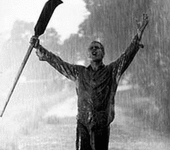|
Replies: 10
| visibility 497
|
Orange Blooded [2322]
TigerPulse: 100%
32
|
Trinity Sunday

1
May 28, 2024, 9:58 AM
|
|
So, this past Sunday was Trinity Sunday. I have tried to get my head wrapped around this, but I really can't seem to get it. Anyone care to dumb down the 3-in-one concept for me?
|
|
|
|
 |
Top TigerNet [32444]
TigerPulse: 100%
55
|
Re: Trinity Sunday
May 28, 2024, 11:10 AM
|
|
It's a response to multiple expressions of God in the OT and NT. Basically, "How can one explain how different people have understood and explained God over 2000 years?
That question ultimately led to about 300 years of different churches thinking different things, and a lot of folks getting excommunicated over it. The Trinity tried to reconcile that.
In a nutshell, the interpretation that was decided on by the church "powers that be" has a distinction between WHAT God is, and WHO God is. Another way of putting it would be "God's substance vs. God's appearance.
A rough analogy would be water. Water IS H2O, but it can APPEAR as water, ice, or steam. One substance, three forms.
But it's way more complicated than that. For instance, Jesus clearly says "the Father is greater than I" -John 14:28. But he also says "I and the Father are one." - John 10:30. How can both be true?
The concept of the Trinity tries to explain that. But some of those excommunicated guys way back when said "No son can be equal to their father because their father came before them." The Trinity doesn't say that though. It says The Father, the Son, and the Holy Ghost are three equal parts of a whole.
That example just scratches the surface of the implications. If the Trinity has existed since creation, that means Jesus is as "old" as God, despite being his son. And that means that Jesus existed from the time Abram left Ur, and actually gave the Jews the Law, through Moses, that he would later sacrifice himself to end.
It also means that God himself, as a part of the Trinity, was on the cross and a part of him died. Like I said, a lot of implications if one follows it all through.
That particular idea that Father/Son/HolyGhost existed since creation is called High Christology. Another view, and the one that I was taught, is called Low Christology. In Low, Jesus was born a man, from a miraculous birth, and became divine either at his baptism or his D&R. That view means that only a man died, but when he was resurrected he became divine. It has the implication that a part of God didn't die on the cross, but also means that the Trinity couldn't have existed since creation, because Jesus didn't exist until Mary bore him.
So either way one goes, it answers some questions and opens others. But it's an attempt, at least, to answer every way God, Jesus, and the HS are spoken of in the Bible.
The Jews and Muslims keep it very simple. God is God, and only God, period. Jesus was a man, and the Holy Spirit is either and angel, or a messenger of God.
At some point I'll go through all the variations of Christology that didn't make it. They all have very valid interpretations that lasted centuries in some cases, they just didn't make the final cut. How can one explain that which cannot be explained, ya know?
|
|
|
|
|
 |
Top TigerNet [32444]
TigerPulse: 100%
55
|
Re: Trinity Sunday
May 28, 2024, 11:20 AM
|
|
Here's the classic graphic of the explanation.

So in the most technical sense, when one speaks of Jesus, Jesus IS God, he's just not the Father. But the Father, too, IS God, he's just not Jesus.
God becomes sort of a composite of the three. And as I said, the implications of all that are bewildering. Wrap that idea in with WHEN the Trinity began, and it makes for as many questions as it answers.
For instance, If Jesus IS God, then who is he asking "Why has though forsaken me?" on the cross? It might be the part of God that is the Father, but why wouldn't Jesus already know the answer if he was the all-knowing God to start with? Low Christology answers that question, but Jesus also clearly says, "before Abraham, I am." Which means he was alive before Abraham. Only High Christology can provide an answer for that. And there's many, many more implications to be sorted through.
|
|
|
|
|
 |
Orange Blooded [2322]
TigerPulse: 100%
32
|
Re: Trinity Sunday

1
May 28, 2024, 1:09 PM
|
|
Whew, thanks. Clear as mud. LOL. I had heard the water analogy before. that's easy enough to understand. Seems like another topic where one explanation works, until you get to a verse that refutes that. I suppose we learn, or at least think in linear terms. Where first there is God, then Jesus (God on earth) and then the Holy Spirit (after the Ascension). And that's easy to grasp as well. But when I hear (or at least think I hear) "No, that's not it", I'm not sure where I go from there. Like you said, explaining the unexplainable.
|
|
|
|
|
 |
Top TigerNet [32444]
TigerPulse: 100%
55
|
Re: Trinity Sunday
May 28, 2024, 1:58 PM
|
|
>until you get to a verse that refutes that.
Each interpretation can be argued in multiple ways, and each way has evidence to back up that thought. Which is why it took the church 300 years to declare a 'compromise' position.
For instance, if Jesus is God, per the Trinity, then he gave birth to himself, via Mary, even though he already existed since creation. As odd as that sounds.
Or, in the beginning, there wasn't just God, there was also Jesus and the Father and the Holy Spirit.
So when 'God' is walking through the Garden of Eden, is that a 4th entity, beyond the Father, the Son, and the HG, or was it Jesus and The Father and the HG walking through Eden in the form of God?
And why would Jesus kick them out of the Garden for disobedience, when Jesus was all about belief and not obeying?
Or another. While Jesus is preaching "Love thy neighbor" in 30 AD, he's was saying "Kill the Amalekites" in 1200 BCE.
And on and on and on.
I like Low Christology, probably because it was what I was taught as a child, and it separates the "stern dad" persona of God in the OT from the "Just love everyone" persona of Jesus in the NT. That's easier for me to reconcile in my own mind. But as I said, there are verses that seemingly contradict Low as well as High.
So as always, you end right back up at faith, and which you believe is the more accurate description.
|
|
|
|
|
 |
Orange Blooded [2322]
TigerPulse: 100%
32
|
Re: Trinity Sunday

1
May 28, 2024, 2:57 PM
|
|
Or, in the beginning, there wasn't just God, there was also Jesus and the Father and the Holy Spirit,
Wasn't this what the Gospel of John is saying? 1:1-2
|
|
|
|
|
 |
Top TigerNet [32444]
TigerPulse: 100%
55
|
Re: Trinity Sunday
May 28, 2024, 5:15 PM
|
|
Yes, that's certainly how I would read those verses.
The "Word" is a very Greek idea, and it's one of the reasons people think that whoever wrote John was educated in, or at least familiar with, Greek ideas and philosophy. As opposed to purely Hebrew philosophy.
The root of Word is the idea of the 'Logos', which means word, but also means rationality, wisdom, and ordering ability. So it's a more powerful and inclusive word than just speaking. It means the ability to create and structure, essentially.
That ties into the idea in many ancient religions of creating order from chaos, in a variety of ways. In Sumerian creation, for instance, order (and thus creation) was established by slaying the monster Tiamat, who embodied chaos.
There idea of the power of the spoken word is pretty old, but not really Hebrew. In the Genesis 1 version of creation, God speaks the universe into existence, "And God Said..." etc.
That's in contrast to the parallel creation story beginning in Gen 2:4, where God creates, builds, and makes things with his hands, even molding man and breathing life into man.
Two completely different "feels" to creation. One version is almost manual labor and craftsmanship, and the other is sweeping rhetoric and the power of speech.
There's lots of blended concepts like that running all through the Bible, between the OT and NT.
Mark, written in maybe 50-60ish AD, reads Jesus as much more of a simple man, while John, written 90-100, has a much more regal and divine feel to it all. Different people, in different times, in different places, and potentially different audiences, writing differently.
Remember there were two early crowds in Christianity who were being converted; Jews, who were already looking for a Messiah (albeit a different kind of Messiah), and Gentiles (primarily Greeks), who had no concept of what a messiah even was, or why you would need one.
So both these people had to be addressed in terms and ways they understood.
|
|
|
|
|
 |
Top TigerNet [32444]
TigerPulse: 100%
55
|
Re: Trinity Sunday
May 28, 2024, 5:25 PM
|
|
>There idea of the power...
*The idea of the power...
|
|
|
|
|
 |
CU Medallion [20972]
TigerPulse: 100%
52
|
Only one problem

2
May 28, 2024, 5:24 PM
[ in reply to Re: Trinity Sunday ] |
|
with the water analogy - they don't all exist in the same form at the same time. God the Father, God the Son, and the Holy Spirit are all co-existing.
One view of how the three work together was given by JI Packer: The Father purposes our salvation, the Son secure our salvation, and the Holy Spirit reveals the truth of our salvation.
|
|
|
|
|
 |
Top TigerNet [32444]
TigerPulse: 100%
55
|
Re: Only one problem

1
May 28, 2024, 5:31 PM
|
|
That's a great point, Hunt. It is a difficult concept to wrap one's head around - the simultaneous nature of it all.
|
|
|
|
|
 |
Ultimate Clemson Legend [104989]
TigerPulse: 100%
64
Posts: 99770
Joined: 2009
|
Re: Only one problem

1
May 31, 2024, 3:50 AM
[ in reply to Only one problem ] |
|
"17 How precious also are thy thoughts unto me, O God! how great is the sum of them!
18 If I should count them, they are more in number than the sand: when I awake, I am still with thee."
Psalms 139.
|
|
|
|
|
|
Replies: 10
| visibility 497
|
|
|
 to award
the award.
to award
the award.







